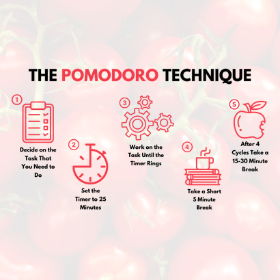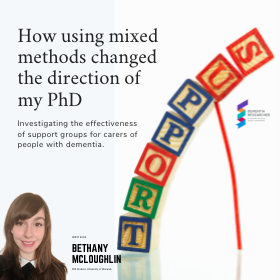When I was a master’s student, I’d constantly hear PhD students joking about being overworked to the point of being on the brink of a complete mental breakdown at all times, and the other PhD students would just nod knowingly and casually laugh it off.
I used to think “yikes, I won’t let that happen to me”, but now I’ve finally become the PhD student nodding and saying “mood”. The past month has felt like I’ve got 100 plates spinning on sticks while the university constantly emails me saying ‘make sure to practice self-care in lockdown!’
This month I’ll be speaking at my first ever academic conference and have had to prepare for that in between attending lectures and meetings, doing assignments, working on a submission to a journal, recruiting participants for my study, organising interviews, conducting interviews, working on my PhD upgrade, doing PPI to develop research proposals, trying to stay on top of my analysis, and so on.
So understandably, when the university emails me to tell me to practice self-care, I just ignore it. When exactly am I supposed to fit in these breathing exercises and long walks?

The Pomodoro technique can really help if you’re struggling to focus.
I had the feeling that one of these spinning plates was going to drop or I was going to start getting grey hair, so I decided to drastically switch up my usual working schedule and try the Pomodoro technique that I’ve seen more and more people talking about recently. The Pomodoro technique involves breaking up work tasks into 25-minute segments, each segment being called a pomodoro (which is Italian for tomato). At the start of the day, I make a to-do list of what needs to be done today and then set a 25-minute timer and start working on the list. After 25 minutes I can mark down a tomato and take a short 5-minute break. After four tomatoes, I can take a longer break of around 30 minutes to watch some TV and have a snack.
I’ve actually been amazed by how breaking things up into things that can be accomplished in 25 minute blocks means that I’m able to hack into my workload without getting overwhelmed by everything I need to do overall, and I’m actually getting more done while feeling less stressed. I’m less worried about grey hair and now I only have to worry about hiding my terrible lockdown haircut for Teams meetings.
So, if you’re an overwhelmed PhD student try looking into the Pomodoro technique. Also writing a blog post about how burned out you are is quite cathartic, try that too!
P.S. this blog post took two tomatoes to write!
Author

Bethany McLoughlin
Bethany McLoughlin is- a first year PhD student at the University of Warwick. Her research focuses on investigating the effectiveness of support groups for carers of people with dementia. Compare the effectiveness and accessibility of online and face-to-face support groups and to explore the pros and cons of each approach. Beth has adapted her research to these changing times and is also interested to learn about the influence of COVID-19 on support groups, and whether online support groups have been effective way of decreasing social isolation in carers during the pandemic. Beth will be sharing her research, study and personal journey in a monthly blog for Dementia Researcher.
What tips would you add? Reply below

 Print This Post
Print This Post



